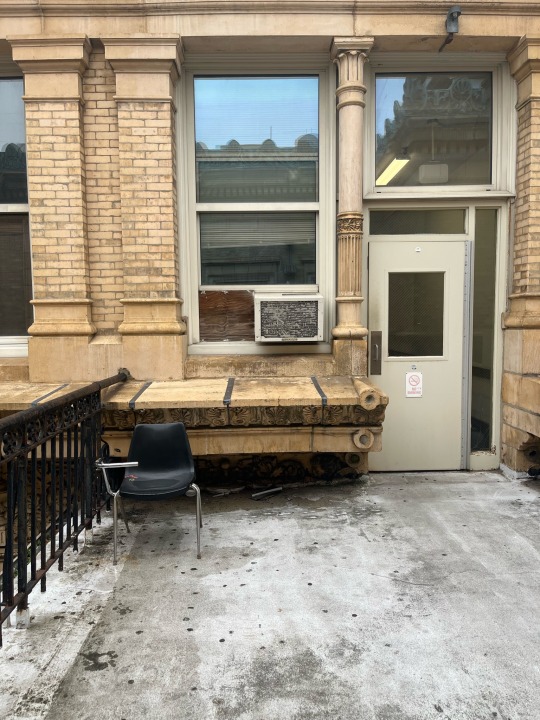Don't wanna be here? Send us removal request.
Text
After President James A. Garfield’s death on September 19, 1881, Vice President Chester A. Arthur assumed the presidency, becoming the 21st President of the United States. 
Arthur was sworn in at his New York City residence by New York Supreme Court Justice John R. Brady at 2:15 a.m. on September 20, 1881. To ensure the legitimacy of his presidency, Arthur took the oath again two days later in Washington, D.C., administered by Chief Justice Morrison Waite. 
youtube
Prior to his vice presidency, Arthur had served as the Collector of the Port of New York, a position from which he was removed due to allegations of corruption. Despite initial skepticism about his capabilities, Arthur’s presidency was marked by significant reforms, including the enactment of the Pendleton Civil Service Reform Act, which aimed to curb the patronage system and promote merit-based appointments in federal positions.  
0 notes
Text
After President James A. Garfield’s death on September 19, 1881, Vice President Chester A. Arthur assumed the presidency, becoming the 21st President of the United States. 
Arthur was sworn in at his New York City residence by New York Supreme Court Justice John R. Brady at 2:15 a.m. on September 20, 1881. To ensure the legitimacy of his presidency, Arthur took the oath again two days later in Washington, D.C., administered by Chief Justice Morrison Waite. 
Prior to his vice presidency, Arthur had served as the Collector of the Port of New York, a position from which he was removed due to allegations of corruption. Despite initial skepticism about his capabilities, Arthur’s presidency was marked by significant reforms, including the enactment of the Pendleton Civil Service Reform Act, which aimed to curb the patronage system and promote merit-based appointments in federal positions.  
0 notes
Text
Charles J. Guiteau, who assassinated President James A. Garfield, believed that his speech titled “Garfield against Hancock” was instrumental in securing Garfield’s presidential victory in 1880. Originally written to support Ulysses S. Grant under the title “Grant against Hancock,” Guiteau hastily modified the speech after Garfield secured the Republican nomination, simply replacing Grant’s name with Garfield’s. This resulted in a disjointed text that inaccurately attributed certain achievements to Garfield that were originally associated with Grant. 
Guiteau printed and distributed several hundred copies of this speech, although he never delivered it publicly. He was convinced that his written advocacy played a pivotal role in Garfield’s narrow victory over Democratic nominee Winfield Scott Hancock. Operating under the expectations of the spoils system, where political supporters were often rewarded with government positions, Guiteau anticipated a significant appointment, specifically seeking a consulship in Vienna or Paris.  
Despite his persistent efforts, including personally delivering his speech to President Garfield and approaching various officials, Guiteau’s requests were consistently denied. This rejection deeply frustrated him, leading to his delusional justification for assassinating the president. Guiteau’s unwavering belief in the significance of his campaign contributions, despite their minimal impact, underscores his detachment from reality and inflated self-importance. 

1 note
·
View note
Text
During the 19th century, the spoils system—where political supporters were rewarded with public office—led to numerous controversial and unqualified appointments. Notable examples include:
• Samuel Swartwout: Appointed as Collector of the Port of New York by President Andrew Jackson in 1829, Swartwout embezzled over $1 million from the government before fleeing to Europe. This significant embezzlement highlighted the risks of appointing individuals based on loyalty rather than merit. 
• Jesse Hoyt: Succeeded Swartwout as Collector but was later found to have also engaged in corrupt activities, underscoring the persistent issues within the patronage system. 
• Alexander McKenzie: A political operative appointed as a federal receiver in Alaska during the late 19th century, McKenzie exploited his position to illegally seize gold mines, demonstrating the extent of corruption possible under the spoils system.
These appointments often resulted in inefficiency and corruption, as positions were filled based on political connections rather than qualifications.
Charles Guiteau’s Confusion and the Spoils System:
Charles J. Guiteau, who assassinated President James A. Garfield in 1881, was a product of the spoils system’s culture. Guiteau had made minor contributions to Garfield’s campaign, including a speech that he believed was instrumental in securing Garfield’s victory. Operating under the expectations set by the spoils system, Guiteau anticipated a significant appointment, such as a consulship in Paris or Vienna. Despite his lack of qualifications, he was persistent in his demands, writing numerous letters and attempting to meet with administration officials. When his requests were consistently denied, Guiteau felt deeply slighted. In his delusion, he believed that removing Garfield would be a patriotic act that would reunite the Republican Party and lead to his desired appointment under Vice President Chester A. Arthur.
This tragic event underscored the dangers of the spoils system, where expectations of political rewards could lead to extreme actions. The assassination intensified public demand for civil service reform, culminating in the passage of the Pendleton Civil Service Reform Act of 1883, which mandated that government positions be awarded based on merit rather than political affiliation. 
The legacy of the spoils system serves as a cautionary tale about the perils of patronage and the necessity for a competent, merit-based civil service to ensure effective and ethical governance.

0 notes


























































